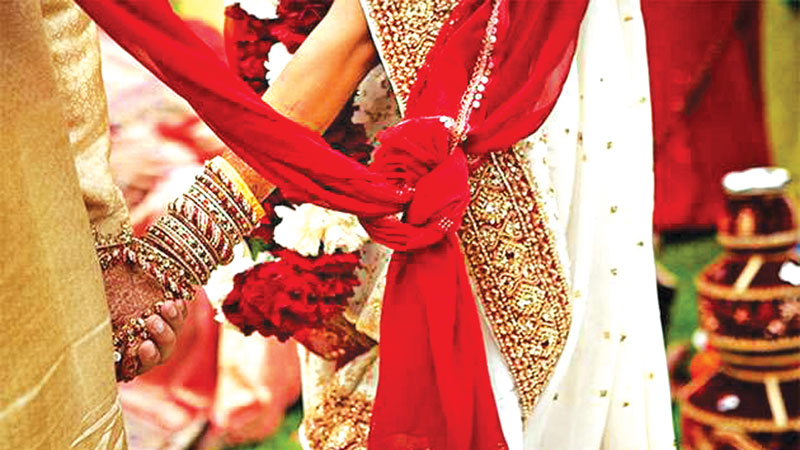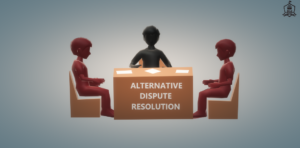Hindus have, from the very beginning of their civilization, regarded marriage as a “sacrament”, as a tie which once tied cannot be untied. It was regarded as a union which subsists not merely during this life but for all lives to come. The intention of the sacrament is to make the husband and wife one, physically and psychically, for secular and spiritual purposes. Hindu scriptures do not recognize a woman’s right to leave her husband under any circumstances. Once a Hindu woman left her parent’s home, she is completely at the mercy of her husband or his parents and if he found her incompatible or unattractive and abandoned her, there is little that she could do. Hence, any notion of separation is a sacrilege, with terrible consequences awaiting both the parties in their future lives. Whatever difficulties the couple may have society and scriptures expect them to continue them in their stride and continue their journey together. Bangladesh follow the centuries-old Dayabhaga law, according which, a Hindu woman does not have the right to divorce her husband.
Besides amending and codifying Sastrik Law, after the independence of Bangladesh, no legislative measure has been taken to address the Hindu marriage system. It follows no legal proceedings rather than social customs. From a gender as well as a religious perspective, the whole spectrum of Hindu marriage certainly indicates the discrimination particularly towards women. Family Court Ordinance,1985 aims at resolving legal disputes related to dissolution of marriage, restitution of conjugal relation, dower, maintenance, guardianship and custody of children. But a Hindu woman can seek help from the ordinance only when the marriage is solemnized by Special Marriage Act, 1872 and registered. As per as the Hindu Married Women’s Right to Separate Residence and Maintenance Act, 1946 Hindu women can file cases with courts to only regain the rights to conjugal life. Besides, the Hindu women can file cases under Family Court Ordinance 1985, Dowry Act 1980 and Women and Children Repression Act 2000. But these laws are too inadequate to protect the Hindu women’s rights. But the situation is quite different in India. There are laws in that country to protect the rights of Hindu woman such as Widow Marriage Act 1856, Earned Property Affairs Act 1930, Hindu Women’s Rights to Land Act 1937.
It would be pertinent to mention the remarkable changes in ancient Hindu Law in India through the Hindu Marriage Act, 1955. Then why not such legislation has been passed here in Bangladesh? Nowadays, since there is no room for getting a lawful divorce, parties find a way to dissolve their marriage through arbitration , where generally the male counterpart pays the female counterpart a fixed amount of money at a time irrespective of the matter whether it will be adequate for her or not. Another problem is, as the Hindu Marriage Registration Act, 2012 does not make the registration mandatory,which is not actually helping to protect the rights of the Hindu women who are deprived of many social and economic privileges. It is also notable that, whereas there are no laws regarding divorce and property rights of Hindus, they are deprived of any legal advice and assistance. On 20 January, 2015 the High Court Division of Bangladesh Supreme Court issued a rule on the Government asking it to explain the reason why a Hindu woman would not be allowed to divorce her husband as there exists no right to do so in the Hindu personal laws. Following a writ petition filed by Bangladesh Human Rights Foundation’s Chief Executive Alena Khan and aggrieved Arpita Das. The petitioner mentioned that Hindu laws on marriage and divorce are inconsistent with the provision of the citizen’s Fundamental Rights which are guaranteed in the articles 26(1), 28, 31 and 32 of her Constitution of Bangladesh as well as articles 3,5,7 and 16(1) of Universal Declaration of Human Rights(UDHR).
According to the Convention on the Elimination of All Forms of Discrimination against Women (CEDAW), the state parties to the convention have the obligation to ensure the equal rights of men and women where the state parties can take necessary step depending on Article 11 on the convention. Article 16(1) of the Convention has focused on the same rights and responsibilities during marriage and at its dissolution foe both men and women. A survey carried out by the South Asian Institute of Advanced Legal and Human Rights Studies shows that out of a total of 175 Hindu people interviewed, 125 supported the right to divorce, 45 were against it and 5 had no response. In this socio-economic context of the present society a separate and distinct legislation is highly required to be passed for the convenience of Hindu community, more specifically for Hindu women.
Monisha Biswas
Latest posts by Monisha Biswas (see all)
- Mooting at GNLU: A Review - May 2, 2019
- Hindu Marriage: The urge of divorce in Bangladesh or A Sacrosanct Marriage Tie - October 14, 2018
- Tale of a piece of Land - July 19, 2018




